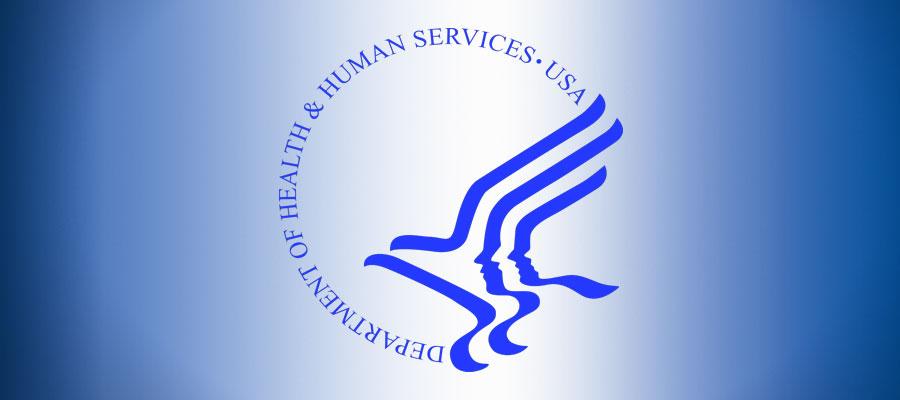HHS's Appointment Of Vaccine Skeptic David Geier Sparks Debate

Table of Contents
David Geier's History of Vaccine Skepticism
David Geier's history is marked by outspoken views questioning the safety and efficacy of certain vaccines. His public statements and published articles have consistently challenged the scientific consensus on vaccine safety, contributing to the spread of misinformation and fueling vaccine hesitancy.
-
Published Articles and Statements: Geier has authored several publications expressing concerns about potential links between vaccines and various health issues, claims that have been widely criticized by the medical community. These publications often lack rigorous scientific methodology and fail to align with the vast body of evidence supporting vaccine safety.
-
Research Criticism: The scientific community has widely criticized Geier's research methodology and conclusions. Many of his studies have been flagged for methodological flaws, selective data presentation, and a lack of peer review scrutiny. These criticisms underscore the significant divergence between his views and the overwhelming consensus within the scientific community.
-
Contrast with Scientific Consensus: It's crucial to highlight the stark contrast between Geier's views and the established scientific consensus. Major health organizations, including the CDC and WHO, unequivocally support the safety and efficacy of vaccines, citing decades of research and epidemiological data. Geier's dissenting voice stands in stark opposition to this overwhelming body of evidence.
-
Potential Conflicts of Interest: While not explicitly confirmed, potential conflicts of interest related to Geier's past work and affiliations should be transparently investigated and addressed. Transparency is paramount to maintaining public trust in government appointments.
Public Health Concerns and the Backlash
Geier's appointment has understandably triggered a significant backlash from public health officials, medical organizations, and concerned citizens. The concerns are multifaceted and deeply rooted in the potential negative consequences for public health.
-
Undermining Public Trust: The appointment of a known vaccine skeptic to a position within the HHS severely undermines public trust in the agency's commitment to promoting vaccination and protecting public health. This erosion of trust can have far-reaching and detrimental effects on public health initiatives.
-
Impact on Immunization Rates: A decline in public trust in vaccines directly translates into lower vaccination rates. Lower vaccination rates increase the risk of outbreaks of vaccine-preventable diseases, endangering vulnerable populations, especially children and the immunocompromised.
-
Reactions from Health Officials and Organizations: Leading medical organizations, including the American Academy of Pediatrics and the American Medical Association, have expressed strong concerns about Geier's appointment, highlighting the potential damage to public health and the importance of evidence-based decision-making in public health policy.
-
Expert Quotes and News Coverage: Numerous news outlets and public health experts have voiced alarm about the appointment, emphasizing the potential negative implications for public health and the importance of maintaining robust vaccination programs to prevent outbreaks of preventable diseases.
The HHS's Response and Justification (if any)
The HHS has yet to offer a compelling justification for Geier's appointment that satisfies the concerns raised by the public and health professionals. The lack of transparency and a convincing explanation only fuels the controversy.
-
Official Statements: To date, official statements from the HHS regarding Geier's appointment have been inadequate in addressing the serious concerns raised by the public and medical community. A more thorough and transparent explanation is necessary.
-
Analysis of the HHS's Reasoning (or Lack Thereof): The absence of a clear and reasoned justification for this appointment raises serious questions about the decision-making process within the HHS. This lack of transparency further erodes public trust.
-
Effectiveness of the HHS's Communication Strategy: The HHS's communication strategy surrounding this appointment has been widely criticized as ineffective and inadequate. A more transparent and proactive approach is needed to address public concerns.
-
Potential Political Motivations: The possibility of political motivations behind the appointment cannot be ignored. It’s crucial to thoroughly investigate the circumstances surrounding the decision and ensure transparency in government appointments.
Analyzing the Potential Long-Term Effects
The long-term consequences of Geier's appointment could be far-reaching and profoundly negative for public health.
-
Long-Term Impact on Vaccine Uptake: The appointment could contribute to a sustained decline in vaccine uptake, leading to increased susceptibility to preventable diseases and potential outbreaks.
-
Public Health Consequences: The potential public health consequences include a resurgence of vaccine-preventable diseases, increased healthcare costs, and potentially higher mortality rates among vulnerable populations.
-
Policy Implications: This controversy could negatively impact future vaccine policy decisions, potentially hindering research funding, vaccine distribution efforts, and public health initiatives aimed at promoting vaccination.
Conclusion
The appointment of David Geier to the HHS has sparked a heated debate about vaccine safety and the critical role of evidence-based decision-making in public health. The concerns raised regarding his history of vaccine skepticism and the potential negative impact on public trust and vaccination rates are substantial. The HHS's lack of a clear and convincing justification further exacerbates the controversy. It’s crucial to remain informed, advocate for evidence-based policies, and continue to support effective vaccination programs. Let's ensure continued support for evidence-based public health measures and challenge misinformation surrounding vaccine safety. The ongoing debate underscores the importance of critical thinking and reliance on credible sources of information when discussing complex public health issues like vaccination. Stay informed and advocate for policies that prioritize public health and promote vaccination.

Featured Posts
-
 Canadas Response To Trump An Alberta Perspective
Apr 27, 2025
Canadas Response To Trump An Alberta Perspective
Apr 27, 2025 -
 Charleston Open Kalinskayas Stunning Win Over Keys
Apr 27, 2025
Charleston Open Kalinskayas Stunning Win Over Keys
Apr 27, 2025 -
 Make February 20 2025 A Happy Day Ideas And Inspiration
Apr 27, 2025
Make February 20 2025 A Happy Day Ideas And Inspiration
Apr 27, 2025 -
 Hhs Appoints Anti Vaccine Activist To Review Autism Vaccine Link Nbc Chicago Sources
Apr 27, 2025
Hhs Appoints Anti Vaccine Activist To Review Autism Vaccine Link Nbc Chicago Sources
Apr 27, 2025 -
 Indian Wells 2024 La Gran Sorpresa Y La Eliminacion De Una Contendiente Favorita
Apr 27, 2025
Indian Wells 2024 La Gran Sorpresa Y La Eliminacion De Una Contendiente Favorita
Apr 27, 2025
Latest Posts
-
 Charleston Tennis Pegula Triumphs Over Collins
Apr 27, 2025
Charleston Tennis Pegula Triumphs Over Collins
Apr 27, 2025 -
 Top Seed Pegula Claims Charleston Championship After Collins Match
Apr 27, 2025
Top Seed Pegula Claims Charleston Championship After Collins Match
Apr 27, 2025 -
 Pegulas Comeback Victory Over Collins In Charleston
Apr 27, 2025
Pegulas Comeback Victory Over Collins In Charleston
Apr 27, 2025 -
 Charleston Open Pegula Upsets Defending Champion Collins
Apr 27, 2025
Charleston Open Pegula Upsets Defending Champion Collins
Apr 27, 2025 -
 Pegula Defeats Collins To Win Charleston Title
Apr 27, 2025
Pegula Defeats Collins To Win Charleston Title
Apr 27, 2025
